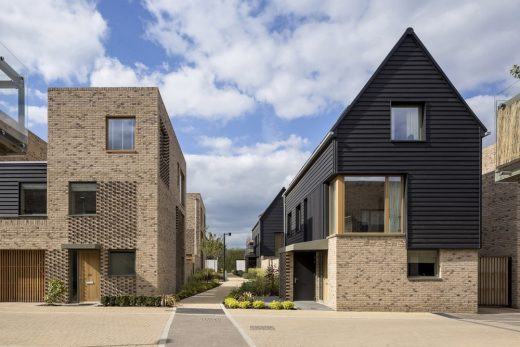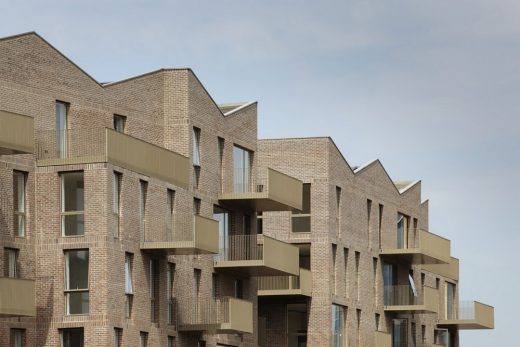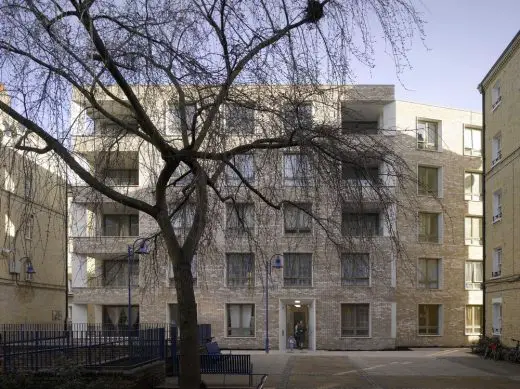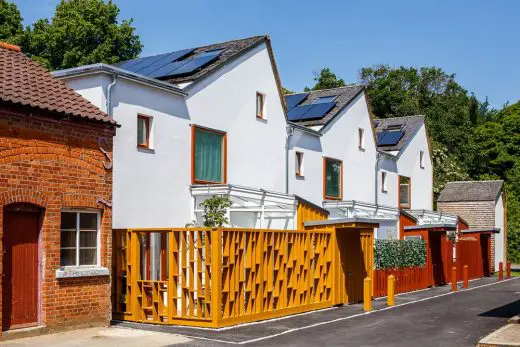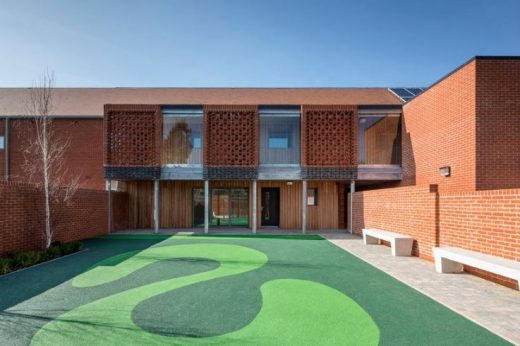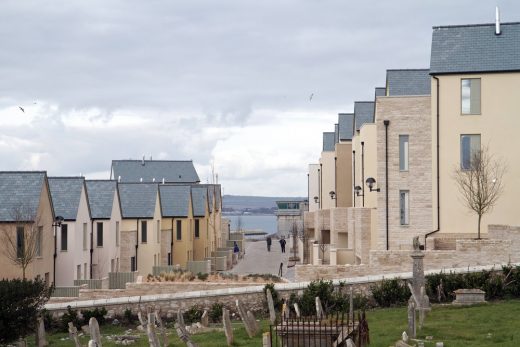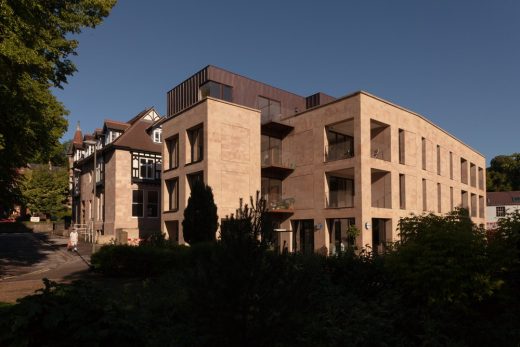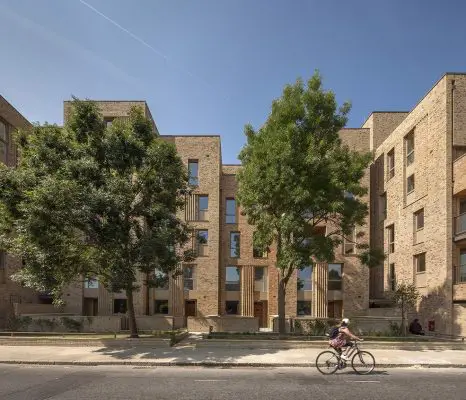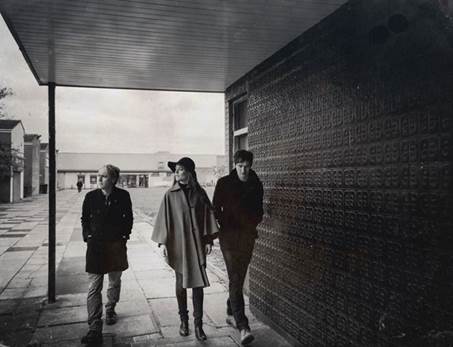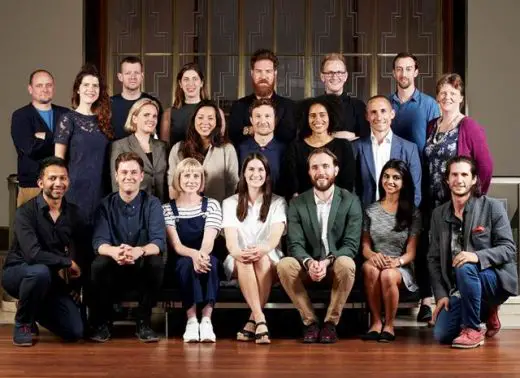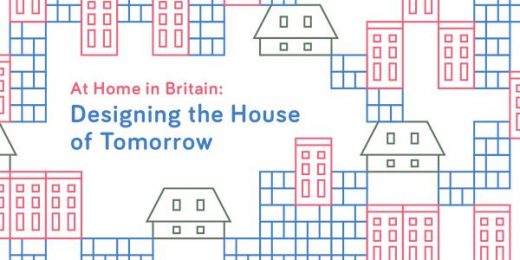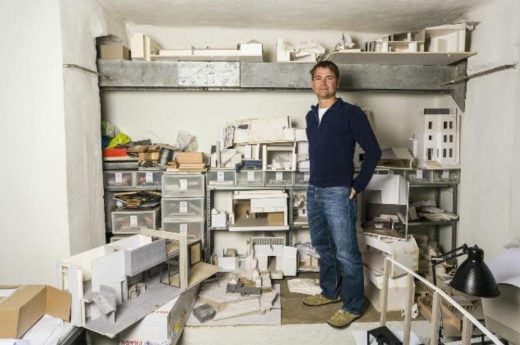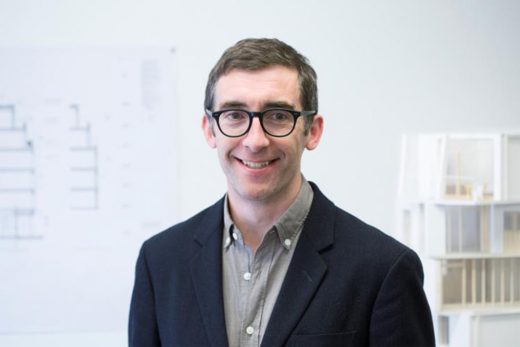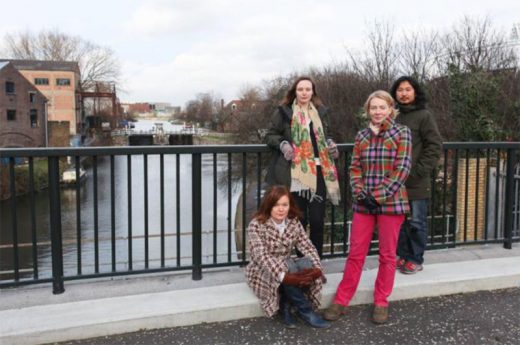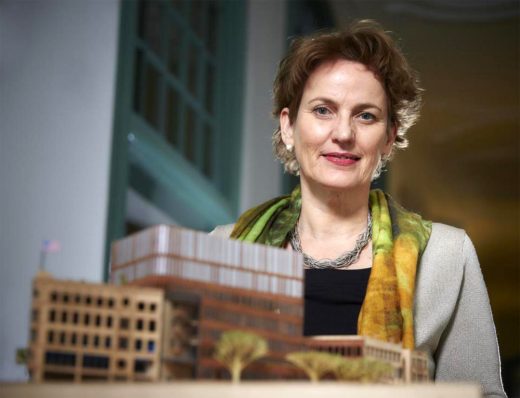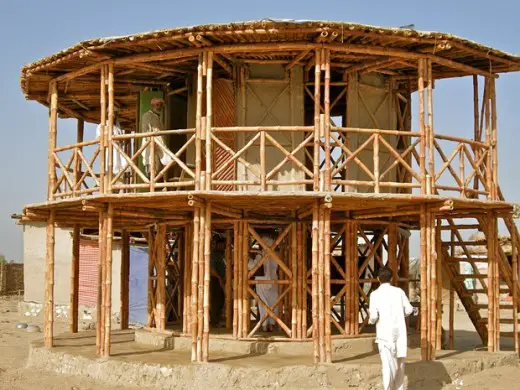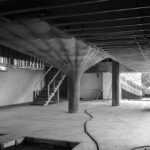RIBA Events 2016, Archive, Architecture Debate London, UK Building Talk, EU Vote, British Architects News
RIBA News & Events in 2016
Royal Institute of British Architects Exhibition + Talks + Events for 2015 to 2016
RIBA News London – current news
RIBA News & Events up to Sep 2016
1 Sep 2016
UK Architects Brexit Issues
Architects’ confidence shaken by Brexit – RIBA Future Trends survey results for July 2016
UK architects expect workloads to decrease for the first time since 2012
1 September 2016 – The Royal Institute of British Architects’ (RIBA) Future Trends survey saw a significant fall in positivity about future workloads in the first month after the UK referendum on EU membership. The RIBA Future Trends Workload Index entered negative territory in July 2016 for the first time since 2012, with the balance figure standing at -7 (down from +22 in June). Participating practices indicated that this fall was driven by concerns about the implications of Brexit.
London saw the biggest drop in confidence about workload prospects. Only Wales and the West (balance figure +14) returned a positive balance figure.
Medium-sized practices (11-50 staff) remained somewhat positive about future workloads. Large (50+ staff) and small (1-10 staff) practices anticipated a decline in medium-term workloads.
The workload forecasts fell across all four sectors – commercial, community, private housing and public sectors – with the private housing and commercial sectors nevertheless in positive territory.
Despite the decrease in workload confidence, the current value of work in progress compared with that of 12 months ago has increased at an annualised rate of 3%.
The RIBA Future Trends Staffing Index declined to a lesser extent, standing at +4 in July (down from +14 in June). 90% of participating practices expect to have the same number of staff or more in the next quarter.
Large practices were the least confident about increasing staff levels with a balance figure of zero, compared with small practices (+3) and medium-sized practices (+12).
RIBA Executive Director Members Adrian Dobson said:
“While a very small number of practices stated that they have seen projects cancelled or postponed as a direct result of the referendum outcome, the sense is that the fall in our index reflects anxiety about the future impact of the decision rather than an immediate change in the workload pipeline. Only time will tell if this change in sentiment is an overreaction to political events, but this fall in the RIBA Future Trends Workload Index must be a cause for some concern.”
4 Aug 2016
20 ways to tackle the housing crisis
New housing can be well designed, sustainable and affordable.
Thursday 4 August 2016 – The Royal Institute of British Architects (RIBA) has today set out its key recommendations for dealing with the UK’s dire housing crisis. With a new government and the leave result of the EU referendum, it’s more vital than ever to ensure design quality isn’t comprised as we ramp up the construction industry to keep Britain’s economy growing and build much needed new homes.
Abode, Great Kneighton by Proctor and Matthews:
photo © Tim Crocker
The new policy document, ‘Housing Matters: #20ways to tackle the housing crisis’, advocates better use of public resources and public sector land, more locally-made decisions, greater focus on good design, increased support for new types of housing development, sustainable and resilient homes and a more transparent housing market.
Brentford Lock West by Duggan Morris Architects:
photo © Jack Hobhouse
The #20ways, which are explained more fully in the policy document, are:
1. Housing policy should be added to the remit of the National Infrastructure Commission and future infrastructure schemes should include details of their impact on housing supply.
2. The Government should adopt the RIBA and House of Lords’ Select Committee recommendation for the establishment of a Chief Built Environment Adviser.
3. The cap on Housing Revenue Account receipts should be lifted to allow councils to borrow to build social housing.
4. Central and local government should set up public sector investment vehicles and a national housing investment bank to issue bonds and ISAs, recycle right to buy receipts and attract long-term institutional investment.
5. Local authorities should set up Local Housing Development Funds, with initial capital for investment provided by local authority pension funds. Once such schemes are up and running, they would be able attract secondary institutional investment.
6. Local leaders should be empowered to shape their local housing market by taking control over requirements for affordable housing, including the tenure composition for new developments (affordable rent, social rent, living rent, shared ownership, Starter Homes) based on local housing need, rather than fixed national targets.
7. The Guiding Principles of the Estates Regeneration programme should be strengthened to ensure that engagement with local communities is at the heart of the process and the rights of existing residents to remain after regeneration is complete– including those who exercised the right to buy – is protected.
8. Sufficient resources must be made available to identify land and for the management and promotion of the custom build register.
9. The Government should ensure Design Review Panels are an integral part of the planning process – particularly for larger and more complex schemes.
10. Local and neighbourhood plans should include design review to help drive high quality design in new housing developments.
11. Key factors that affect quality of life and affordability of housing like space, access and environmental standards should be subject to regular review to ensure that the highest possible standards are adopted.
12. The value of social return should be given equal consideration to economic return and the long-term impact of a proposal on the public sector should be taken into account to ensure that inappropriate development is avoided.
13. Local authorities should consider partnering arrangements where land and ownership is retained by the authority, possibly in the form of Community Land Trusts, to ensure long-term best value for those assets.
14. The removal of stamp duty when moving to a smaller home should be piloted in the Autumn Statement.
15. A distinct, clear planning use class should be introduced for housing for older people that is designed to Housing our Ageing Population: Panel for Innovation (HAPPI) principles.
16. Local authorities should be required to address the principles of inclusive design in internal and external environments and the needs of older people in plan-making and land allocation.
17. Research into concerns around viability, build quality and overheating should be commissioned to help guide future standards.
18. The metrics currently used to calculate energy efficiency and CO2 reduction should be reviewed; learning from other European countries such as Germany and Denmark.
19. A VAT rebate scheme should be made available for the renovation and improvement of homes with poor energy efficiency.
20. The Neighbourhood Planning and Infrastructure Bill should be amended to ensure that viability assessments used in Section 106/CIL discussions are public documents – with no commercial confidentiality restrictions.
Darbishire Place by Niall McLaughlin Architects:
photo © Nick Kane
Exhibition Mews by Ash Sakula Architects:
photo © Gareth Gardner
RIBA President Jane Duncan said:
“The actions we’ve set out are achievable and realistic steps the government can take now to tackle the housing crisis. Everyone has the right to live in a well-designed, sustainable, affordable home – we must work together to realise new solutions to make this a reality for the majority, not just the wealthy few. High quality design that offers better value for money in the long-term is a key solution. Without better spending, the homes we build now will not be built to last and are simply storing up further challenges for the future.”
Hargood Close by Proctor and Matthews:
photo © Tim Crocker
Officers Field by HTA Design LLP:
photo © Jonathan Gooding
Alex Ely from RIBA’s Housing Group said:
“Demand for new homes continues to outstrip supply and successive governments have failed to keep up. In particular, there is a huge shortage of genuinely affordable new homes to buy or rent in many parts of the country. Housing policy alone won’t be enough to solve a housing crisis with roots that are as complex as they are varied. The only solution lies in bringing together the public and private sector to promote, enable and finance new homes, and improve the quality of the homes we already have and are already building.”
Parkside by Evans Vettori:
photo © Tristan Poyser
Royal Road by Panter Hudspith:
photo © Morley von Sternberg
Housing Matters: #20ways to tackle the housing crisis can be found here: www.Architecture.com/HousingMatters
29 Jul 2016
Joint Statement on Brexit from the Architects of Britain and Ireland
Friday 29th of July 2016 – The Presidents and Directors of the five professional bodies representing architects on the islands of Britain and Ireland met in Belfast earlier this week to discuss the implications of the UK referendum to leave the European Union and have released the following joint statement.
This joint statement is made on behalf of:
• Royal Incorporation of Architects in Scotland (RIAS)
• The Royal Institute of Architects in Ireland (RIAI)
• The Royal Institute of British Architects (RIBA)
• Royal Society of Architects in Wales (RSAW)
• Royal Society of Ulster Architects (RSUA)
“The uncertainty caused by the result of the EU referendum in the UK could have a major impact on the construction industry across these islands and we know that some building projects have been put on hold. Restoring stability and confidence as a matter of urgency will enable us to maximise the opportunities presented by the UK’s new relationship with the EU and the rest of the world. It is our view that the free movement of people, goods and services throughout Europe is of paramount importance to the economic, social and environmental well-being of these islands. We call on the Government of the United Kingdom of Great Britain and Northern Ireland, as it negotiates the UK’s exit from the European Union, to protect free movement.”
Additional comment from each individual professional body
RIBA President Jane Duncan said:
“UK architecture is a resilient, flexible and innovative profession with a long and proud history. I’m confident that architects, along with our partners in the wider creative and construction industries can help deliver strong economic growth for the UK during and after Brexit. As we look outwards to the world, we will continue our work with the UK government to address the challenges and support the opportunities that arise from Brexit, including pressing for continued free movement so vital for architects’ practices in the UK and the EU, and mutual recognition of qualifications.”
Paul Crowe, President of RSUA
“Unlike in other parts of the UK, the level of investment in Northern Ireland’s built environment was still significantly below pre-recession levels even before Brexit. The modest recovery we were experiencing is now in jeopardy. There are concerns that Brexit might hit Northern Ireland harder than elsewhere in the UK and we believe there is an onus on the UK Government to take account of this as it rolls out measures to mitigate the impact of Brexit. Looking ahead it is essential that some way is found to maintain free movement and free trade across the border between Northern Ireland and the Republic of Ireland.”
Robert Firth, President of RSAW
“The Royal Society of Architects in Wales fully supports the Welsh Government in its demands that Wales should not lose out on projects and funding that would previously have resulted from our position as a region of the EU.
Architects want to play a key part in creating better places for everyone – and to engage with the Welsh Government to achieve its aims of a sustainable, vibrant country through the Wellbeing of Future Generations Act. Wales is a small nation with an international outlook so our cultural and economic connection with Europe will be vital for students and practitioners of architecture in the future.”
Carole Pollard, President of RIAI
“The Royal Institute of Architects in Ireland is the representative body for architects throughout the island of Ireland. There have always been strong connections between the architectural profession in Ireland and the rest of the United Kingdom. That connection has been built on a long tradition of movement of the profession between both jurisdictions and the cyclical nature of the construction industry has ensured a constant flow of architects throughout these islands. Free movement of people and services, particularly via the open border between Northern Ireland and the Republic of Ireland, is essential for a healthy and sustainable construction sector.”
Willie Watt, President of RIAS
“Our Festival of Architecture, celebrating the RIAS’ centenary this year, has reaffirmed that Scottish architecture has been greatly enriched by our close trading and cultural relationships with the UK and Europe. We join with our colleagues from throughout the UK and in the Republic of Ireland in seeking to retain and strengthen those ties.”
27 Jul 2016
RIBA sets out challenges and opportunities facing UK architects after Brexit vote
27th July 2016 – The Royal Institute of British Architects (RIBA) has published a new policy briefing highlighting five challenges and five opportunities for architects and architecture in the UK following the referendum to leave the European Union. In the policy document, RIBA, the membership organisation that provides the standards, training, support and recognition for 40,000 architects in the UK and overseas, offers policy solutions for the UK government that will support architecture’s contribution to economic growth and the quality of the built environment.
FIVE Challenges
1. Upholding the strength of the UK’s world-class architectural sector – Government must prioritise the promotion of open markets at home and abroad, and ensure that it is easier to access finance for business – but in particular SMEs.
2. Maintaining a skilled and innovative profession – Government must ensure that freedom of movement for architects and the wider construction and creative sectors is maintained.
3. Retaining the free movement of skills/services and mutual recognition of professional qualifications – The UK should seek mutual recognition arrangements for architects in other large markets. The transferability of UK services within the EU, and the recognition of EU architectural qualifications within the UK must be maintained.
4. Sustaining affordable EU product supply and ability to specify product standards – The UK must continue to be party to the European Committee for Standardisation’s (CEN) and European Committee for Electrotechnical Standardisation (CENELEC) discussions on the specific needs of the EU in relation to a given standard, and on mandates and decisions about harmonised standards. To promote business within the UK and the export market, common product standards must prevail.
5. Retaining access to research funding – Now more than ever, ensuring affordable access to high quality professional education will be crucial to the UK economy’s success in light of a widening of the skills gaps in the construction and design industry.
FIVE Opportunities
1. Forging new commercial and research partnerships through new trade agreements – The UK Government should seek to forge new trade agreements which include trade in services agreements, especially with the UK’s top non-EU trading partners, and in areas where UK tradesmen can add most value e.g. Asian countries experiencing rapid urban growth and high levels of infrastructure investment.
2. Strengthening the UK economy – The Government should set a target for infrastructure spending that ensures the UK’s road, rail, air and telecoms networks are world class.
3. Gaining a competitive advantage in EU and overseas markets – The government should negotiate transferability of educational qualifications with key partner countries.
4. Improving SME access to public sector projects by reforming UK procurement policy – Government should do more to ensure that procurement policies are designed with a focus on quality and overall value.
5. Using VAT flexibility to boost construction and bring down costs of meeting standards – The government should explore changes to the UK’s VAT regime to promote sustainability in the renovation and refurbishment of buildings.
RIBA President Jane Duncan said
“UK architecture is a flexible and innovative profession. With the right actions taken to address the challenges and exploit the opportunities we’ve outlined today, I’m confident UK architects can deliver strong economic growth, and the buildings and spaces that meet the needs of our communities.”
The RIBA Policy Briefing on Brexit is available to read in full here: http://www.architecture.com/Brexit
27 Jul 2016
RIBA awards £75,000 to support architectural research
27th of July 2016 – The Royal Institute of British Architects (RIBA) has today announced the recipients of the RIBA Research Trust Awards, the RIBA LKE Ozolins Studentship and the RIBA Boyd Auger Scholarship.
RIBA Research Trust Awards
The RIBA Research Trust Awards are offered annually to support independent architectural research. The 2016 recipients of the RIBA Research Trust Awards are:
• Bill Halsall and Robert MacDonald, ‘Design for Dementia: The International Architectural Challenges and Responses’- £8,000
• Philip Graham, ‘Appropriate Housing: A land partnering model to deliver good homes as places to stay and play’- £8,000
• Roland Karthaus, ‘Building rehabilitative spaces’- £8,000
• Torsten Schmiedeknecht, ‘The representation of modern architecture through illustrations in postwar British children’s literature’- £6,000
RIBA LKE Ozolins Studentship
The RIBA LKE Ozolins Studentship is awarded to a student who wishes to pursue, continue, or complete a higher degree in research (PhD/MPhil or MRes). The 2016 recipient of the RIBA LKE Ozolins Studentship is:
• Judit Ferencz, ‘The Graphic Novel as an Interdisciplinary Conservation Method in Architectural Heritage’ – £40,000
RIBA Boyd Auger Scholarship
The RIBA Boyd Auger Scholarship supports architecture students or recent graduates by providing an opportunity for imaginative, original research and travel. The 2016 recipient of the RIBA Boyd Auger Scholarship is:
• Laura Evans, ‘Portico and Patio: Response to Climate and Tradition in Cuban Modernist Architecture’ – £5,000
Applications for the three funding schemes were assessed by the RIBA Research Grants sub-committee, which comprises:
• Professor Robert Brown, Plymouth University (RIBA Council member)
• Dolan Conway
• Sophie Handler (Chair)
• Robert Mitchell, Mitchell Taylor Workshop
• Dr Alexandra Stara, Kingston University
• Victoria Thornton, Open City
• Meryl Townley, van Heyningen and Haward Architects (RIBA Council member)
• Dr Stephen Walker, University of Sheffield
RIBA President, Jane Duncan said:
“I am pleased that this year we are supporting such a diverse range of research, all of it valuable to the progression of architecture. I am particularly thrilled that three of the RIBA Research Trust Award projects are based in or working with RIBA Chartered Practices; it is vital that we support the future of our profession by encouraging our members to collaborate on innovative research.”
RIBA Research Grants sub-committee Chair, Sophie Handler said:
“The committee was delighted to see such a broad range of exciting submissions for this year’s awards. It is encouraging to see such breadth and creativity in these submissions, by both skilled researchers and practicing architects alike.”
22 Jul 2016
RIBA Event – People and Place – an evening of music, film and literature
The Magnetic North and RIBA present People and Place – an evening of live music, film, literature and architecture
Tuesday 9 August, 7.30 – 11pm, RIBA, 66 Portland Place, London, W1
Tickets £15, concessions £13.50
A one-off summer special event on People and Place with The Magnetic North performing with a full band line up and the premier screening of their new short film alongside specially commissioned readings from writers Amy Liptrot, Laura Barton and John Grindrod.
The Magnetic North’s new album, The Prospect Of Skelmersdale, explores themes of utopian dreams, architecture, new towns, people and place. They band will also screen the first showing of their short film on the people and environs of “Skem” a post war “New Town” in Lancashire, (childhood home of band member Tong), which was made following the band’s recent gig in Skelmersdale.
Inspired by works such as Ken Loach’s “Kes” and Ted Hughes’ “Remains of Elmet”, it is a musical reflection of Skelmersdale, its past and its continually developing present. It draws on childhood memories, the urban landscape and the lives of its inhabitants, uncovering the beauty, magic and mythology that can be found in the most unexpected places.
Prior to the band performing, there will be talks and readings from special guests John Grindrod (author of Concretopia), Amy Liptrot (author of The Outrun) and Laura Barton (writer and broadcaster of Radio 4’s Notes from a Musical Island) who will read and introduce the band.
A specially commissioned piece written by artist and writer Bill Drummond entitled “The Sweetest Hangover” has been written to celebrate the event which discusses Drummonds love/hate relationship with New Towns and their impact on his life.
This unique show is co-curated with Vine Collective/Third Nature who design and deliver events across London. The event will complement the themes of the current exhibition ‘At Home in Britain – Designing the House of Tomorrow’.
Laura Barton is a writer and broadcaster. A regular contributor to publications such as the Guardian, 1843 and Q, she also writes and presents for Radio 4, and her book about music and sadness will be published next year. Raised in Lancashire, she now lives in Kent. Twitter: (at)missbarton
John Grindrod is the author of Concretopia: A Journey Around the Rebuilding of Postwar Britain published by Old Street in 2013. His next book, Outskirts: Living Life on the Edge of the Green Belt, will be published by Sceptre in 2017. He runs the website dirtymodernscoundrel.com and can be contacted on Twitter (at)Grindrod.
Amy Liptrot grew up on a sheep farm in Orkney, Scotland. She’s a writer and her first book, The Outrun, a memoir, was published in January 2016 and has been shortlisted for the Wellcome and Wainwright Book Prizes.
The Magnetic North are a true one off; a questing band who’ve made two peerless albums wholly evocative musical travelogues; each tracing song lines around the geographical heritage of one of the band’s members.
18 Jul 2016
RIBA Regent Street Windows Project 2016
The Royal Institute of British Architects announces architect-retailer collaborations for RIBA Regent Street Windows 2016
Architects and designers participating in the RIBA Regent Street Windows Project 2016:
The RIBA Regent Street Windows Project matches cutting edge RIBA architects with some of London’s most prestigious retailers to create stunning architectural installations in shop windows along and around London’s Regent Street, W1. This year the sequence of architectural installations extends beyond Regent Street to include participation from Liberty on Great Marlborough Street and the RIBA offices headquarters on Portland Place.
These unique and eye-catching displays demonstrate the innovation and creativity of architects whilst highlighting the participating fashion brands as champions of good design. The installations both enhance the retail experience for the customer and increase footfall for the retailer.
This year the installations will be up for three weeks from 5-25 September 2016 and will coincide with both London Fashion Week (16-20 September), the London Design Festival (17-25 September) and a new commission by Giles Round on facades (21 September – 30 December) at the Architecture Gallery at RIBA. Regent Street will become a platform for creativity, where architects and designers will showcase and explain their work in a celebration of all things ‘designer’ over the three week period.
The project is run by the London Region of the Royal Institute of British Architects in partnership with the Regent Street Association and is sponsored by The Crown Estate.
Participating retailers and architects in 2016 include:
7 For All Mankind with KSR Architects
Armani Exchange with Matheson Whiteley
Charles Tyrwhitt with Bureau de Change
Kate Spade with Design Haus Liberty
Kiehl’s with Piercy & Company x Electrolight
KIKO MILANO with Aleksa Studio
Liberty with Architecture Social Club
Molton Brown with Knox Bhavan & Susie MacMurray
RIBA, 76 Portland Place with CAN + Nina Shen Poblete
Uniqlo with Projects Office
15 Jul 2016
2016 RIBA AHR Stephen Williams Scholarship News
The Royal Institute of British Architects (RIBA) and AHR have announced Boon Yik Chung as the 2016/17 winner of the RIBA AHR Stephen Williams Scholarship.
Boon Yik Chung – 2016/17 winner of the RIBA AHR Stephen Williams Scholarship:
photo © Morley von Sternberg
RIBA AHR Stephen Williams Scholarship 2016
Boon Yik Chung completed his Part 1 at the Bartlett School of Architecture, UCL and was awarded the RIBA President’s Bronze Medal in December 2015. He is currently working at muf architecture/art LLP and will be starting his MArch (RIBA Part 2) in September 2016, continuing at the Bartlett School of Architecture.
4 Jul 2016
RIBA Strategy 2016 to 2020
RIBA publish their strategic plan for the next five years. While the primary focus has always been on members, the RIBA will now concentrate on reinventing and re-invigorating that focus, working around the pillars of a strong profession, a strong voice and a strong organisation.
Equality and inclusivity, social purpose, resourcefulness, professionalism and ethics will be the key themes running through everything they do.
RIBA Brexit Update
We are continuing to update the advice we provide to our members and the positive action we are taking following the outcome of the EU referendum result on the RIBA’s Brexit briefing page. More information will be shared as soon as it becomes available. If you have questions or want to share your views please email president.brexit(at)riba.org. Your feedback is invaluable in helping to shape the action we take. The RIBA is an inclusive global professional membership body with architects from over 115 countries. The EU referendum does not affect our membership criteria or our position as an inclusive membership body and we are delighted to have such a diverse membership from around the world.
Next RIBA President
The ballot for this year’s RIBA Council and Presidential elections opens on Tuesday
5 July at 9am. On Monday 4 July you will receive an email from Electoral Reform Services providing a link to where you can cast your vote.
24 Jun 2016
RIBA reacts to Brexit
RIBA reacts to European Union Referendum Vote
24th of June 2016 – The Royal Institute of British Architects (RIBA) has given its initial response to the result of the United Kingdom’s European Union (EU) referendum.
RIBA President Jane Duncan said:
“The RIBA is a global organisation that supports its members, validates schools of architecture and champions the importance of a quality built environment around the world. UK architecture talent is incredibly resilient and we will continue to ensure that our profession has a bright future, whatever the operating environment.
“Clearly there is uncertainty about the timescales and impact on a range of issues important to our industry including free movement in the EU for architects as well as students, trading and material sourcing, inward investment relationships, EU procurement rules and the effect on the construction sector if restrictions are placed on EU migration.
“In common with other UK businesses and organisations, the RIBA is assessing the short and longer term effect of the withdrawal on our members and the Institute and we will provide further guidance in due course.
“Most importantly, we will work with colleagues in industry and government to ensure that architects have a strong voice in the coming weeks, months and years.”
RIBA annual commission – Giles Round installation
The Architecture Gallery, RIBA
22 September – 23 December 2016
24th of June 2016 – This autumn the Royal Institute of British Architects (RIBA) presents a new commission by multi-disciplinary artist Giles Round. Through extensive research of RIBA’s Collections and dialogue with contemporary practitioners, Round will create a site-specific installation for the Architecture Gallery that brings attention to one of the most familiar and unavoidable physical features of our everyday lives: the façade. The front of buildings reveals the intentions, functions and architectural periods and styles of our cities – or so it would seem on the surface. Often the use or function of a building is taken far beyond the original intentions of the architect and whilst the external appearance of the city may endure, its internal spaces are in a constant state of transformation.
Inspired by the work of a wide range of architects represented in the RIBA Collections, from Michael Searles to Berthold Lubetkin and Venturi Scott Brown, Giles’ work will explore the tension between the inside and outside of buildings and our often deceptive understanding of cities by transforming RIBA and the use of the Architecture Gallery itself and display selected objects from the collection.
Giles Round
Giles works in the cross-over between art, architecture, craft and design. Previous projects and exhibitions of his have bridged graphics, design, art, architecture, interiors, and set design. He has created immersive installations in a multitude of settings from the home to galleries and outdoor spaces. The works range from small objects to large-scale sculpture, wallpapers and installation. A firm believer that design and architecture play an active role in well-being, Giles’ work uses these tactics to create immersive and thought-provoking viewer experiences.
The exhibition is sponsored by Wedge Group Galvanising and is supported by Cockayne – Grants for the Arts and The London Community Foundation.
23 May 2016
RIBA Joins Global Alliance for Urban Crises
RIBA joins new global alliance for urban crisis
The Royal Institute of British Architects (RIBA) has become a member of the Global Alliance for Urban Crises, which was launched earlier today during the first-ever World Humanitarian Summit (WHS), taking place on 23-24 May 2016 in Istanbul, Turkey.
The Global Alliance for Urban Crises will bring together urban professionals, UN agencies, the development community and the private sector on a common platform for advocacy, lobbying and action to respond to the growing importance of urban humanitarian assistance.
The Alliance will make the following major commitments:
• An Urban Crisis Charter – Alliance members will work together to enable urban societies, in particular those most at risk, to prepare for, cope with and recover more quickly from the effects of humanitarian crises
• An Action Agenda – the Alliance will develop: innovative area-based approaches to address the nature and complexity of urban crisis management and response; more predictable surge capacity of local government and urban expertise to empower municipal governments’ response capabilities; methods for managing urban displacement effectively; and recommendations for sustainable financing instruments.
As part of its own commitment, the RIBA is working in collaboration with the Royal Town Planning Institute and the Institution of Structural Engineers to create an advisory group, the aim of which will be to provide the international humanitarian and development community with a more effective conduit to the collective expertise of its member institutes together with access to the combined resources of over 100,000 members working in more than 150 countries throughout the world.
Peter Oborn, RIBA Vice President International said:
“RIBA is delighted to seize this opportunity to be part of a vital new global framework for urban preparedness, response and recovery. We look forward to contributing the expertise we and our 40,000 members can bring to the alliance, particularly as there is an increasingly urban dimension to humanitarian crises.”
More information about the Global Alliance for Urban Crises session at the World Humanitarian Summit:
http://consultations.worldhumanitariansummit.org/bitcache/5f1a0a1810de2d56e49fed4e4e1bed3fe68e3f52?vid=574064&disposition=inline&op=view
17 May 2016
RIBA London Architecture Event in 2016
At Home in Britain: Designing the House of Tomorrow, London, UK
18 May – 29 Aug 2016
Six architects from Britain, the Netherlands and France have been tasked with rethinking the traditional housing templates of cottage, terrace and flat. Using the RIBA archives as a starting point, the architects will explore affordability, communal living and housing density in today’s Britain. New commissions by Jamie Fobert Architects, Mæ, Maison Edouard François, Mecanoo, Studio Weave and vPPR.
At Home in Britain re-examines how we live and speculates on the future of housing in Britain. Taking the cottage, the terraced house and the flat as a starting point and using RIBA Collections as stimulus, six newly commissioned works from contemporary architecture practices Jamie Fobert Architects, Mae, Maison Edouard François, Mecanoo, Studio Weave and vPPR transform these three familiar housing types to reflect the way we live and work in the 21st century.
A BBC and RIBA partnership
The season will be accompanied by a three- part BBC4 television series, presented by Dan Cruickshank, looking at the history of the cottage, terrace and flat.
The Six architects:
Jamie Fobert (Cottage and exhibition designer)
Jamie Fobert Architects have significant experience in housing design, having been nominated for the RIBA House of the Year Award four times. JFA are currently restoring Kettle’s Yard House and Gallery, as well as designing the extension for Tate St Ives. This portfolio of residential work combined with a sound knowledge of the arts sector is why they have been selected to participate in the exhibition.
http://jamiefobertarchitects.com/work/
Maison Edouard Francois (Cottage)
Edouard Francois is a renowned Parisian architect known for designing French social housing and sustainable architecture. His approach is both radical and contemporary, whilst remaining respectful to history. The cottage has been romanticised across Britain more than anywhere else. Asking a French architect to reimagine this historic typology will allow fresh insight into the possibilities of the cottage for the 21st century and make comparison to similar approaches and challenges in France.
http://www.edouardfrancois.com/en/all-projects/housing/
vPPR (Terrace)
Founded by three women who met whilst studying at Cambridge University, vPPR have had notable success with residential schemes on land-locked sites. Vaulted House, shortlisted for the RIBA House of the Year Award 2015, is a fantastic example of how the traditional layout of a house can be manipulated to make the most of its surroundings. This innovative approach, combined with their interest in historical precedent, is why they have been selected to explore the terrace brief.
http://www.vppr.co.uk/vppr-projects.html
Mae (Terrace)
Mae is a London-based practice with not only a respected body of residential work, but also substantial published research in housing. Most notably, Mae was commissioned by the Greater London Authority to produce the London Housing Design Guide, detailing a set of standards for all new housing in London. Mae are currently working with the Cass Faculty of Architecture to study housing from the 1950s-1970s and investigate how it can evolve to meet today’s needs. The team is led by Alex Ely, former head of Sustainable Communities at CABE.
http://www.mae.co.uk/projects#all
Studio Weave (Flat)
Studio Weave is an emerging practice undertaking multidisciplinary projects with a playful approach. Co-founded by Je Ahn, recipient of the RIBA Research Trust Award, the practice is carrying out research into co-housing. It is this interest in co-housing that makes Studio Weave so relevant to the flat commission. Their previous work includes bold and colourful installations within the public realm. It is anticipated that this strong and distinctive style will be visually engaging within an exhibition context.
http://www.studioweave.com/projects/
Mecanoo (Flat)
Based in the Netherlands, world-renowned Mecanoo led by Francine Houben have experience of housing both there and in the UK. Houben was awarded the Prins Bernhard Cultuurfonds Prize for lifetime achievement on 30 November 2015 and has over 30 years’ experience in the design of buildings and urban plans. Mecanoo is known for revolutionising social housing in Holland in the 1980s (with Hillekop) and are currently working on the Northwest Cambridge Development, to provide affordable post- doctorate housing for the University of Cambridge. This knowledge of the student sector, alongside social housing schemes in the Netherlands, is why they have been asked to work on the flat commission brief. Social housing is viewed very differently in the Netherlands and across Europe to in Britain, and it is hoped that this international perspective will offer new solutions for the housing crisis. Mecanoo is mostly known in the UK for building the new Birmingham Library.
http://www.mecanoo.nl/
FREE ENTRY
18 May to 29 August 2016
Monday – Sunday 10am to 5pm
Tuesdays 10am to 8pm
The Architecture Gallery, RIBA, 66 Portland Place, London, W1B 1AD
http://www.architecture.com/Explore/ExhibitionsandEvents/AtHomeInBritain/AtHomeInBritain.aspx
Talks & Events
– A Shared Utopia: The Truth About Co-housing
24 May
Join us for the reveal of three 1:1 installations developed and built for our ‘Constructing Communities’ Open Call as part of the London Festival of Architecture, as well as screenings, performances, talks and debates.
– The New Standard House
31 May
A panel discussion exploring the ideas in two concurrent exhibitions: Home Economics at the British Pavilion, Venice Architecture Biennale and At Home in Britain: Designing for the House of Tomorrow at RIBA.
– Half Term Workshops
1 – 3 Jun
Make yourself at home with RIBA during the school holidays. All workshops are inspired by At Home in Britain.
22 Apr 2016
RIBA Regent Street Windows Project
This unique opportunity for RIBA Chartered Practices and Members is back for 2016. The initiative pairs exceptional RIBA architects with retailers to create engaging architectural installations in shop windows along Regent Street, London. Submit your entries by 13 May for your chance to gain huge publicity and a track record of working with high-profile retail clients.
21 Apr 2016
Reimagining 66 Portland Place focus groups
Join the discussions on the future of the iconic RIBA building with Sarah Williams, the project’s client adviser and other key stakeholders at one of the following focus groups.
Please confirm attendance by 19 April, using the specific email addresses:
Tuesday 26 April 6pm to 7:30pm,
66 Portland Place, London
ribalondon(at)riba.org
Thursday 28 April 5pm to 7pm, Northumbria University
kate.sankey(at)riba.org
Wednesday 4 May 6pm to 8pm,
De Montfort University, Leicester
riba.eastmidlands(at)riba.org
Thursday 5 May 5pm to 6.30pm,
The Bond, Birmingham
riba.westmidlands(at)riba.org
13 Apr 2016
Dan Cruickshank: At Home with the British
3 x 60 mins, TBC date week commencing 14th May 2016
Presented by Dan Cruickshank and produced in partnership with the Royal Institute of British Architects, this BBC Four series takes an up-close-and-personal look at the place we are all familiar with but rarely stop to question – our home. Why are those stairs at that angle? Why is the kitchen at the back of the house? Why are some houses made of wattle and daub, and some of brick? And why do some live in a terrace and some in a flat? How did the British home end up looking the way it does – and why?
5 Apr 2016
2016 RIBA Wren Insurance Association and RIBA AHR Stephen Williams Scholarships: call for entries
Ongoing support of the next generation of architects by offering scholarships funded by RIBA partners:
Five RIBA Wren Insurance Association Scholarships announced, worth £5,000 each, supporting outstanding Part 2 students who have the potential to make a significant contribution in the field of architecture (deadline 9 May 2016).
In addition, the RIBA have opened applications to the RIBA AHR Stephen Williams Scholarship, also worth £5,000, for one student undertaking a period of postgraduate studies of up to 12 months in the UK or abroad (deadline 24 May 2016).
16 March 2016
RIBA Budget View
‘Budget for the next generation’ won’t deliver unless we see a long-term plan to tackle the housing crisis
The Royal Institute of British Architects (RIBA) has responded to today’s Budget from the Chancellor George Osborne.
RIBA President Jane Duncan said: “The changes to the rules on business rates and national insurance contributions will be well received by RIBA architects working on their own or at smaller practices.
“Planned investments to infrastructure projects in London and the North of England are a welcome boost to capacity. Further devolution deals will be an ideal opportunity for architects to work with communities on housing, planning and transport issues that ensure we get more high quality affordable homes for everyone. I’m also pleased the importance of protecting our homes and businesses against flooding has been recognised.
“But, there are too many unanswered questions about how the Government plans to address the housing crisis affecting every part of the country. Councils need to be given greater borrowing powers to invest in new housing. The continued focus on home ownership means that there are huge parts of the market where private developers and housing associations either can’t or won’t invest.”
28 Jan 2016
RIBA Exhibition
Creation from Catastrophe Exhibition
Creation from Catastrophe: How architecture rebuilds communities, RIBA HQ, 66 Portland Place, London, UK
New exhibition at, sponsored by Ruskin, opens Wednesday 27 January, exploring the varying ways that cities and communities have been re-imagined in the aftermath of natural disasters.
Creation from Catastrophe RIBA exhibition:
It includes works by Yasmeen Lari, ELEMENTAL, OMA, Shigeru Ban, NLÉ, Toyo Ito, Kenzo Tange and Kurokawa Kisho (Metabolism) and Sir Christopher Wren.
Accompanying the exhibition, we have a season of International Dialogues, workshops and events with architects Yasmeen Lari, Reiner de Graaf (OMA), Kunlé Adeyemi (NLÉ) and many more.
“A disaster zone where everything is lost offers the perfect opportunity for us to take a fresh look, from the ground up, at what architecture really is.” Toyo Ito
Women’s Centre, Darya Khan, Pakistan, designed by Yasmeen Lari:
The destruction of cities, whether man-made or natural, can present unique opportunities to radically rethink townscapes. Creation from Catastrophe: How architecture rebuilds communities explores the varying ways that cities and communities have been re-imagined in the aftermath of natural disasters. From masterplans to reconfigure London after the Great Fire of 1666 to contemporary responses to earthquakes and tsunamis, the exhibition considers the evolving relationship between man, architecture and nature and asks whether we are now facing a paradigm shift in how we live and build in the 21st century.
Creation from Catastrophe exhibition:
Take a journey from London in 1666, through to 18th century Lisbon, 19th century Chicago, 20th century Skopje, and ending in current day Nepal, Nigeria, Japan, Chile, Pakistan and USA. Illustrated by historical and contemporary with work by, among others, Yasmeen Lari, ELEMENTAL, OMA, Shigeru Ban, NLÉ, Toyo Ito, Metabolism (Kenzo Tange and Kurokawa Kisho) and Sir Christopher Wren.
Entry: Free
Dates: 27 January 2016 to 24 April 2016 – Monday – Sunday 10am to 5pm ; Tuesdays 10am to 8pm
Venue: The Architecture Gallery, RIBA, 66 Portland Place, London, W1B 1AD
Twitter: #creationfromcatastrophe
Link: http://www.architecture.com/Explore/ExhibitionsandEvents/CreationFromCatastrophe/CreationFromCatastrophe.aspx
27 Jan 2016
RIBA News for 2016
RIBA Chief Executive Harry Rich
Dear RIBA Members,
I wanted to let you know that RIBA Chief Executive Harry Rich has decided to move on from the RIBA. Harry will pass his Chief Executive responsibilities on to Alan Vallance (RIBA’s Interim Director of Finance & Operations) from 1 February and will make himself available to assist Alan during the following weeks.
Harry has worked with dedication and passion to steer the RIBA successfully through a difficult recession. After six years of significant change and innovation he has created a lasting legacy.
The RIBA Board has this week accepted his resignation and I hope you will all join me in wishing him all the very best for his future endeavours.
Best wishes
Jane Duncan, RIBA President
Dear Members,
I wanted to let you know that I have decided to move on from the RIBA. This feels like a good moment to hand over executive leadership as we are about to embark on our next five-year strategy.
I have had the privilege of being Chief Executive of our wonderful and unique organisation for six years. During that time we – staff and members together – have delivered so much and have innovated and changed what we do and how we do it to make our organisation fit for the future. One of the great pleasures of the past six years has been to meet and talk to hundreds of members at dozens of branch events and in practices all over the country. Thank you for the warmth of your welcome, your support, insights and openness.
My colleagues and I are proud of working to serve our members and of shaping services and ideas to help the profession thrive into the future. We have found new ways to use our collections, awards and policy work to speak up strongly and effectively about the importance of architecture and architects to our society and economy. We have a growing band of supporters and partners, both through our policy influence and donors and sponsors. Our organisation is more effective and around the country and in London we now work in offices that are worthy of our staff.
I will pass my Chief Executive responsibilities to Alan Vallance from 1 February and will work with Alan during February and will make myself available to assist Alan during the following weeks to ensure a smooth handover.
Kind regards
Harry Rich, RIBA Chief Executive
Royal Institute of British Architects 66 Portland Place, London, England W1B 1AD
3 Dec 2015
RIBA News for 2015
Alleged Racism in Election of RIBA Vice President Practice & Profession
RIBA President Jane Duncan said:
“On 25 September 2015, Elsie Owusu, RIBA Council member wrote to me expressing dissatisfaction about her unsuccessful election by RIBA Council as Vice President Practice & Profession, the previous day. Within Elsie’s correspondence, she alleged that the election process may have been tainted by “institutional racism”.
RIBA Building London:
photo © Adrian Welch
As a longstanding equality and diversity champion for the Institute I took this allegation very seriously and in consultation with RIBA’s senior members instructed the appointment of an expert on institutional governance, Stephen Hockman QC, to lead an independent investigation.
Terms of reference for this investigation have been shared with all parties concerned and as agreed at a meeting of the RIBA Council yesterday, RIBA Council members will discuss a report on the matter at the next meeting in March.
I am very disappointed to see new allegations attributed to Elsie Owusu in a press report today, specifically accusing RIBA of ‘a culture of institutionalised racism, discrimination and conflict’. Elsie is a RIBA Role Model on diversity issues and sits on the RIBA Architects for Change group which plays a vital role in championing increased diversity within our profession. We have asked Elsie to put these broadened allegations to RIBA directly and will deal with the matter in the appropriate way.”
Posted on Thursday 3rd December 2015
Ref. http://www.architecture.com/RIBA/Contactus/NewsAndPress/Membernews/Membershipnews/2015/AllegedracisminelectionofRIBAVice-PresidentPracticeandProfession.aspx
RIBA Events for Autumn 2015 – Winter 2015/2016
RIBA Building London by evening:
photograph © The RIBA
Royal Gold Medal Week 2016
As part of the Royal Gold Medal Week 2016, new and existing RIBA International and Honorary Fellows are delivering two days of Masterclasses, along with the 2016 Royal Gold Medal Lecture by Dame Zaha Hadid and a keynote address by Sir Peter Cook.
Single day tickets are available for the Monday or Tuesday, or save £75 and buy a two-day pass for all events.
Tickets for evening events (Sir Peter Cook’s keynote address and Dame Zaha Hadid’s lecture) are also available.
http://www.architecture.com/Awards/RGM/RGM2016/Royal_Gold_Medal_2016.aspx
TICKETS
Monday Pass (at) £112 + VAT
Royal Gold Medal Week 2016 Masterclasses
Four Masterclasses are presented by new and existing RIBA International and Honorary Fellows. Book a 1 Day Pass and you will be able to attend all four Masterclasses to include refreshments and an evening Keynote Address by Sir Peter Cook. The evening will feature the presentation of the 2016 RIBA International and Honorary Fellowships.
10am to 4.30pm: Masterclasses*
Monday 1 February Full Programme:
10am to 11am:
Yvonne Farrell, architect, Grafton Architects
11am to 11.30am:
Break (30 mins)
11.30am to 12.30pm:
Martha Thorne, Executive Director, The Pritzker Prize and Dean of IE School of Architecture and Design, Madrid
2pm to 3pm:
Bjarke Ingels, architect, BIG
3pm to 3.30pm:
Break (30 mins)
3.30pm to 4.30pm:
Grayson Perry CBE, artist
6pm:
Keynote Address by Sir Peter Cook, founder of Archigram.
Presentation of the 2016 RIBA International and Honorary Fellowships.
2016 Royal Gold Medal Lecture by Dame Zaha Hadid
Tuesday 2 February pass: for a listing of the masterclasses and to book, go to Tuesday Masterclasses and 2016 Royal Gold Medal Lecture by Dame Zaha Hadid.
Dame Zaha Hadid is the first woman to be awarded the prestigious honour in her own right. She will deliver the Royal Gold Medal Lecture 2016 as part of Royal Gold Medal Week on Tuesday 2 February 2016.
Doors will open at 6pm. Advance bookings essential.
TICKETS
£20 + VAT
http://www.architecture.com/WhatsOn/Feb2016/RoyalGoldMedal2016WinnerLecture.aspx
2016 Royal Gold Medal keynote address by Sir Peter Cook
A keynote address delivered by Sir Peter Cook, founder of Archigram and the presentation of the 2016 RIBA International and Honorary Fellowships.
The evening will feature the presentation of the 2016 RIBA International and Honorary Fellowships.
TICKETS
£15 + VAT
http://www.architecture.com/WhatsOn/Feb2016/RoyalGoldMedal2016KeynoteEvent.aspx
RIBA Event London – Archive
RIBA London Event information from RIBA
Location: London, UK
RIBA Events – Archive
RIBA London Exhibition
Contemporary Norwegian Architecture: Landscape and Intervention by Reiulf Ramstad and Jensen & Skodvin
12 Apr – 15 Jun 2012
Venue: RIBA, 66 Portland Place, London W1B 1AD; Gallery Two and Florence Hall

image : Jensen & Skodvin Architects
Reiulf Ramstad Architects and Jensen & Skodvin Architects are two of the most high-profile and innovative architects practices based in Norway.
This exhibition explores their work, highlighting rural contemporary Norwegian architecture through the National Tourist Routes in Norway scheme.
A selection of Tourist Routes projects – completed across the country – are displayed by each practice, in addition to a range of other buildings that have been undertaken, including housing and public works.
Norwegian Architecture
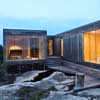
photo : Kim Müller
Reiulf Ramstad Architects

photo from Reiulf Ramstad Arkitekter
Jensen & Skodvin

image : Jensen & Skodvin Architects
Chartered Institute of Building
Free admission
Contact: Admission to all RIBA exhibitions is free. Galleries at 66 Portland Place are open Mon – Sat, 10am – 5pm.
Please note, galleries may be closed early for special events. Call +44 (0)20 7307 3888 to check opening times.
Renzo Piano – the Shard Story
Tuesday 12 Jun, 18.30 tickets £12/£10 concession
LKE Ozolins Lecture 2012
The Shard, London – new photos
Design: Renzo Piano Building Workshop (RPBW)

photo © Nick Weall
Internationally acclaimed architect of The Shard, Renzo Piano marks its topping out with a lecture revealing the story behind it.
Angela Brady : former RIBA President
RIBA Trust Autumn Lecture Series 2009
London Architecture Events:
Bartlett School of Architecture Event
Comments / photos for the RIBA News & Events in London page welcome
